
Cost
How Much Does a Bathroom Addition Cost?
09.26.2025
Our New Year savings event is here: Get up to $6,500 off your project today (terms apply).

.jpg?width=640&name=How%20Much%20Does%20it%20Cost%20to%20Install%20a%20Shower_%20(2024).jpg)
In This Article
When you think about the time you spend in your bathroom, it's clear that having a comfortable and functional shower is pretty important. A well-installed shower isn't just a place to wash; it's a space to relax and recharge. Yet, like anything else in the home, installing a shower costs money. So just how much does it cost to put a shower in your home in 2026? Let’s dive in and find out!
Learn More: How Much Does it Cost to Renovate a Bathroom?
When deciding to install a new shower, one of your first considerations will be the type of shower you want. This decision will greatly influence the overall cost of your shower installation. Generally, showers come in two main types: prefabricated (or prefab) showers and custom showers. Each type has its own benefits and cost implications, making it essential to understand both options before proceeding.
Prefabricated showers, or prefab showers, are ready-made units that are easy and quick to install. Typically made from materials like fiberglass or acrylic, they come in various shapes and sizes. These showers are ideal for those wanting a fast bathroom renovation without the complexity and expense of a custom build. They’re especially favored by DIY enthusiasts because they can often be installed without professional help.
While prefab showers offer convenience, they don't provide the same customization level as custom showers. This means design and size options are limited, potentially restricting creativity. Despite this, they remain a practical choice for many who seek to update their bathrooms efficiently and affordably.
For homeowners who appreciate a clean and timeless look, exploring white shower tile ideas can add elegance to even the simplest prefab showers.
Pros of Prefab Showers:
Cons of Prefab Showers:
Who this is for: Prefab showers are perfect for budget-conscious homeowners looking for a quick and straightforward bathroom update.
Custom showers are crafted to match the homeowner's specific tastes and bathroom space, allowing for modern designs and personalized features. Unlike prefab units, they can be made from various materials like tile or natural stone, providing endless aesthetic possibilities. Read more about modern shower tile ideas. These showers are perfect for those seeking a luxurious experience or needing to address specific spatial needs. However, they often require more time, labor, and professional expertise, making them more expensive to install. The detail and craftsmanship involved mean custom showers are a significant investment. Designing, selecting materials, and executing detailed installations require time and skill. Despite the cost, the result is a personalized shower that greatly enhances the home's appeal and value.
Pros of Custom Showers:
Cons of Custom Showers:
Who this is for: Custom showers are ideal for homeowners who prioritize personalization and are willing to invest in a custom design that perfectly fits their vision and space.
Bring Your Dream Bathroom to Life
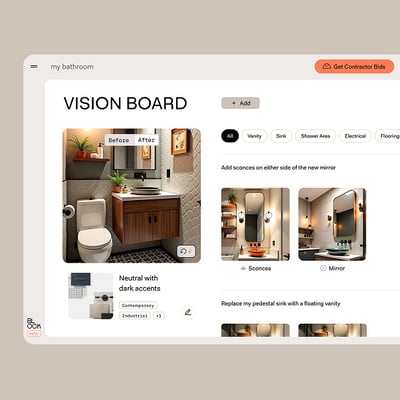
When planning for a new shower installation, the size of the shower plays a pivotal role in determining the overall cost. Whether you’re considering a compact setup for a smaller bathroom or a spacious design for maximum comfort, different sizes come with varying costs.
Understanding how size impacts installation expenses will help you make informed decisions and set realistic budgets as you plan your bathroom upgrade. Let's break down what you can expect when choosing the right shower size for your needs.
|
Shower Size (Inches)
|
Prefab Cost Range
|
Custom Cost Range
|
|
Small (32" x 32" to 36" x 36")
|
$1,000–$3,000
|
$3,000–$5,000
|
|
Medium (48" x 36" or 48" x 48")
|
$1,500–$4,000
|
$4,000–$7,000
|
|
Large (60" x 36" or More)
|
$2,000–$5,000
|
$6,000–$10,000+
|
For small showers ranging from 32 inches by 32 inches to 36 by 36 inches, the installation costs can vary based on materials and labor. Generally, the cost for installing a small prefab shower can range from $1,000 to $3,000. Custom small showers may run higher, from $3,000 to $5,000, depending on the chosen materials and finishes. These costs are approximate based on standard industry pricing and can fluctuate depending on location and specific project requirements.
Medium-sized showers offer a balance between space and cost, making them a popular choice for many homeowners. With dimensions typically around 48 inches by 36 inches or 48 inches by 48 inches, these showers provide more room for comfort without overwhelming your bathroom's space. Installation costs for medium showers generally reflect their larger size and might include additional features like bench seats or upgraded fixtures.
Prefab models for this size can cost between $1,500 and $4,000, while custom options can range from $4,000 to $7,000, depending on the materials and design elements chosen. These showers are ideal for those who want a little extra space and versatility in their bathroom without excessive expense.
Large showers are perfect for homeowners seeking luxury and ample space in their bathroom design. With dimensions starting at 60 inches by 36 inches and extending larger, these showers can accommodate multiple fixtures and offer a spa-like experience. They can be particularly beneficial for those who may need more accessibility features. The installation costs for large showers reflect their size and the potential for more intricate designs or upscale materials.
Prefab large showers can range from $2,000 to $5,000, while custom installations can soar from $6,000 to $10,000 or more, depending on the complexity and finishes. These showers are ideal for those who want a roomy, luxurious bathing experience, making their bathroom a true retreat.
When budgeting for a new shower installation, it's important to remember that costs can extend beyond just the shower unit itself. Additional expenses, such as demolition, plumbing modifications, permits, and other features, can significantly impact the overall cost of your project.
Converting a bathtub to a shower is a popular choice for homeowners looking to modernize their bathroom or improve accessibility. This transformation involves removing the existing tub, preparing the area, and installing a new shower. The cost for such a conversion can range from $1,200 to $8,000 or more, depending on factors such as the size of the shower, materials used, type of shower chosen, plumbing work, and local labor costs.
Learn More: What's the ROI of a Bathroom Renovation?
When replacing an existing shower, demolition and removal are essential steps that add to the overall project cost. The process of demolishing the old shower can add $50 to $100 to your budget, with an additional $250 for hauling away construction debris. If the project involves demolishing walls or moving pipes, these costs can increase further, ranging from $600 to $1,600 depending on the complexity of the work required.
Plumbing modifications are a crucial consideration in any new or replacement shower installation. This often involves updating or adding new pipes and fixtures, or removing and relocating existing plumbing. The costs associated with these modifications can vary significantly, with plumbers typically charging between $600 to $1,600 per fixture. Additionally, installing a new drain line can cost between $1,000 to $7,000.
Perfect Every Detail of Your Bathroom
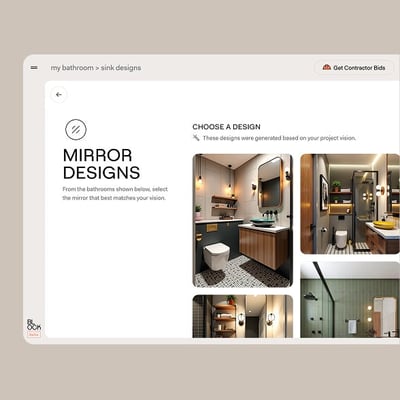
Waterproofing is a crucial step in ensuring your shower remains leak-free and durable over time. For this critical service, the costs can vary based on the method used. A waterproof sheet membrane typically costs between $500 and $1,000, while a liquid membrane might range from $50 to $800. These costs are essential to consider when planning your custom shower installation, as proper waterproofing protects against water damage and increases the longevity of your shower space.
Incorporating accessibility features into your shower design can enhance safety and convenience for individuals with mobility challenges. These enhancements include installing grab bars, which typically cost between $50 and $300, including labor. Adding a wall-mounted fold-down shower bench can range from $100 to $500.
Labor costs for shower installation can vary greatly, typically ranging from $400 to $2,000. This variation is influenced by factors such as the complexity of the installation, the shower type, and the local labor market. Simple prefab shower installations generally fall on the lower end of the cost spectrum, while custom showers that require more intricate work, such as tiling or plumbing modifications, can reach the higher end. It's crucial to factor in these labor expenses when budgeting for your new shower, as they can significantly impact the total installation cost.
When planning your shower installation, it's important to consider additional costs that may arise beyond the basic unit and labor fees. These can include expenses for necessary permits, which typically cost around $250, and any additional materials needed for specialized finishes. Adding luxury features such as high-end fixtures or digital controls can also increase costs. Furthermore, unexpected repairs or modifications might be required once the installation begins, making it wise to budget a little extra to cover these potential expenses and ensure a smooth and uninterrupted installation process.
Learn More: How to Convert a Bathtub into a Shower
Deciding whether to tackle a shower installation as a DIY project or hire a professional can significantly impact the cost, time, and outcome of your bathroom upgrade. Going the DIY route can save money on labor and give you a sense of accomplishment. However, it requires a good understanding of plumbing and construction to avoid costly mistakes. On the other hand, hiring a professional ensures quality workmanship and typically faster completion, though at a higher price.
Here’s a quick pros and cons table to help you decide:
|
Option
|
Pros
|
Cons
|
|
DIY Installation
|
|
|
|
Hire a Professional
|
|
|
Turn your renovation vision into reality
Get matched with trusted contractors and start your renovation today!
Find a Contractor
Choosing the right contractor is crucial for a successful bathroom renovation. They’ll be your primary contact, problem-solver, and expert, guiding your project from start to finish. With so much riding on their expertise, finding the right fit is essential.
But how do you start? Sorting through contractors can feel overwhelming.
Block simplifies the process: we’ll connect you with up to three highly vetted bathroom remodel contractors from our trusted network.
Our vetting process ensures each contractor offers:
After being matched, you can meet contractors during a site visit at your home before receiving proposals.
This is a big decision, and Block is here to help you make it confidently.

Written by Block Renovation
How much does it cost to replace a bathtub with a walk-in shower?
Is it a good idea to replace a tub with a walk-in shower?
Will a walk-in shower add value to my home?
What are the pros & cons of a walk-in shower?
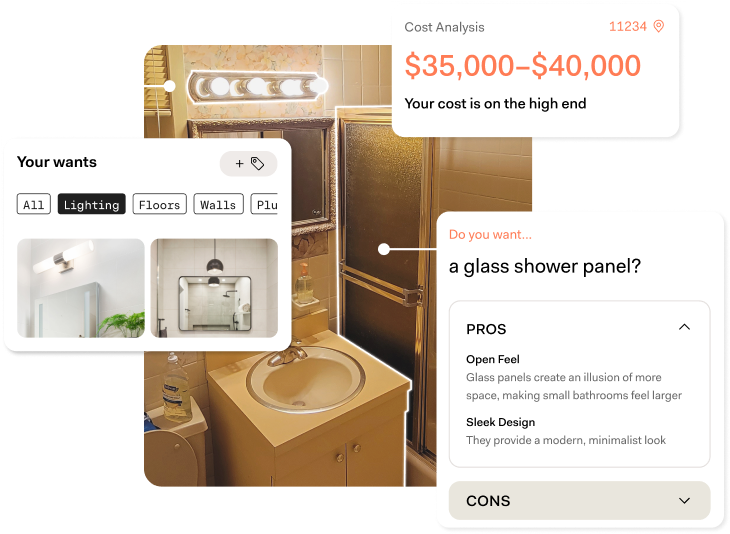
Calculate the true cost of your bathroom remodel
Get real-time cost estimates for materials and labor, so you can budget your renovation with confidence—no guesswork.

Cost
How Much Does a Bathroom Addition Cost?
09.26.2025
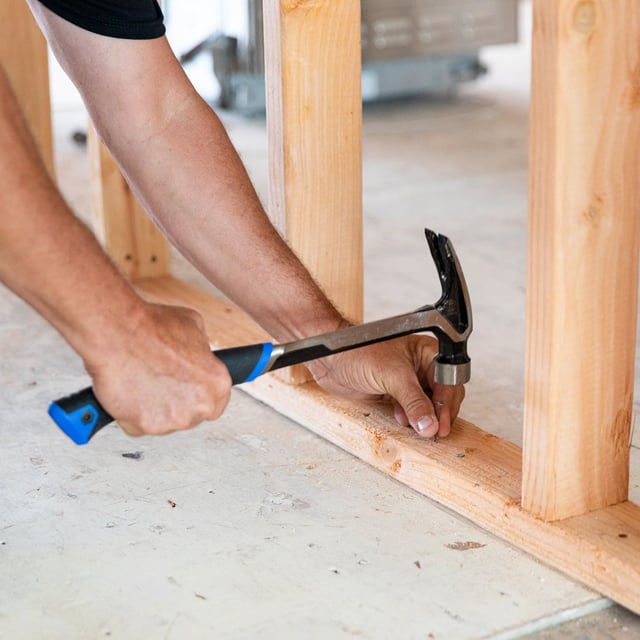
Cost
Calculating the Cost of Your 12x24 Addition
09.18.2025
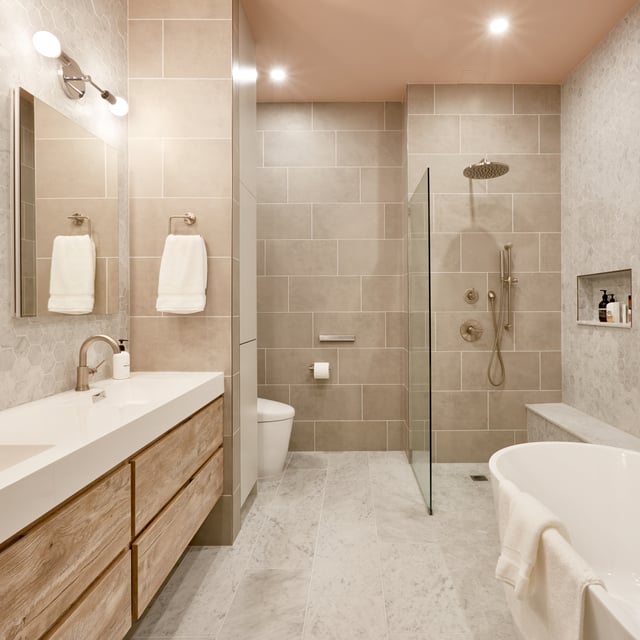
Cost
10x10 Bathroom Remodeling Costs
09.18.2025

Cost
The Average Cost of a Jacuzzi Bath Remodel—and How to Save
09.18.2025
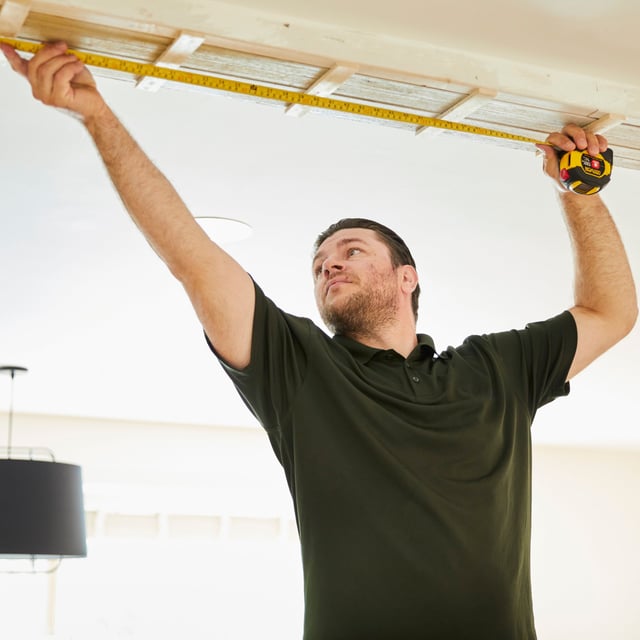
Cost
Ceiling Installation Costs: Repairs & Replacement Pricing
09.05.2025
Renovate confidently